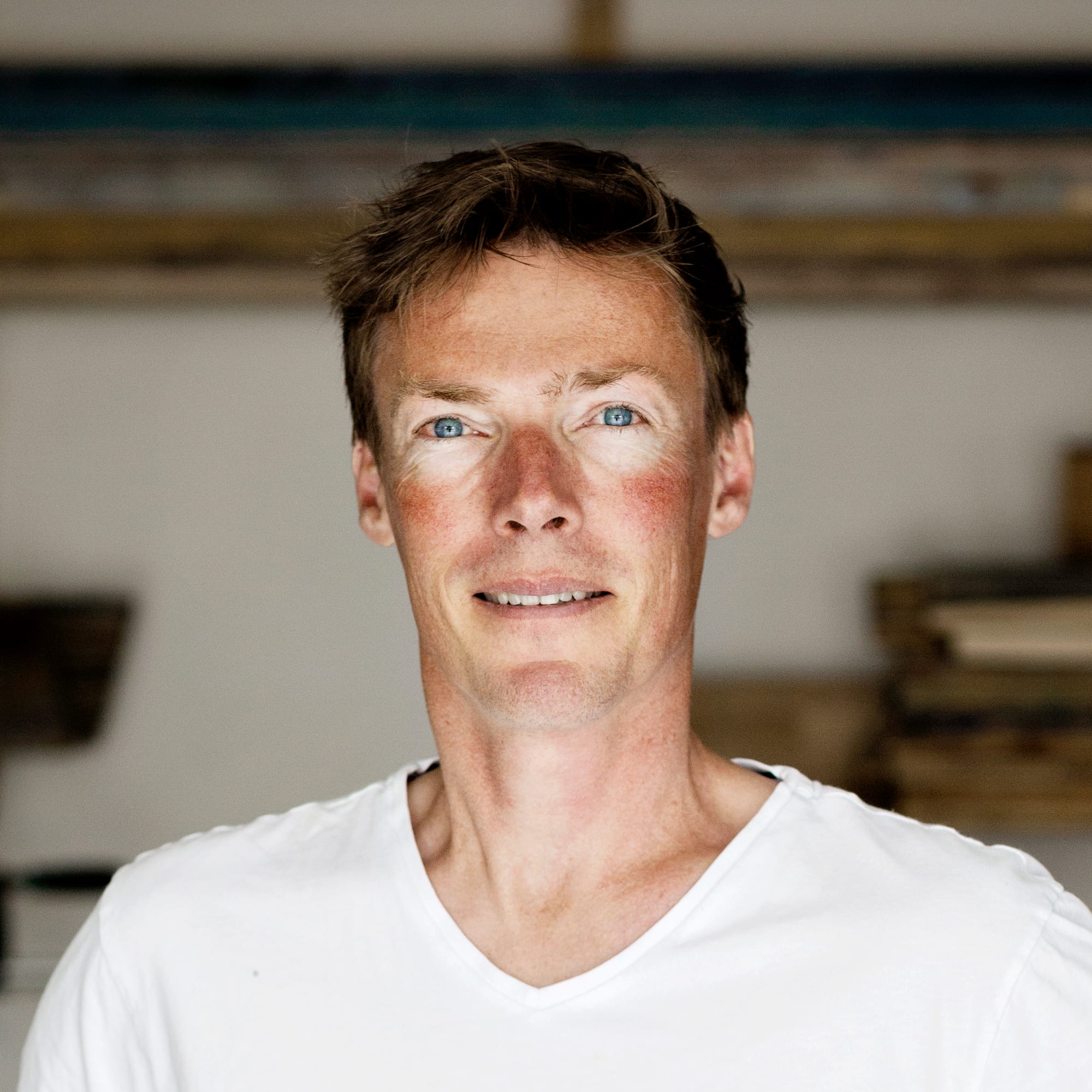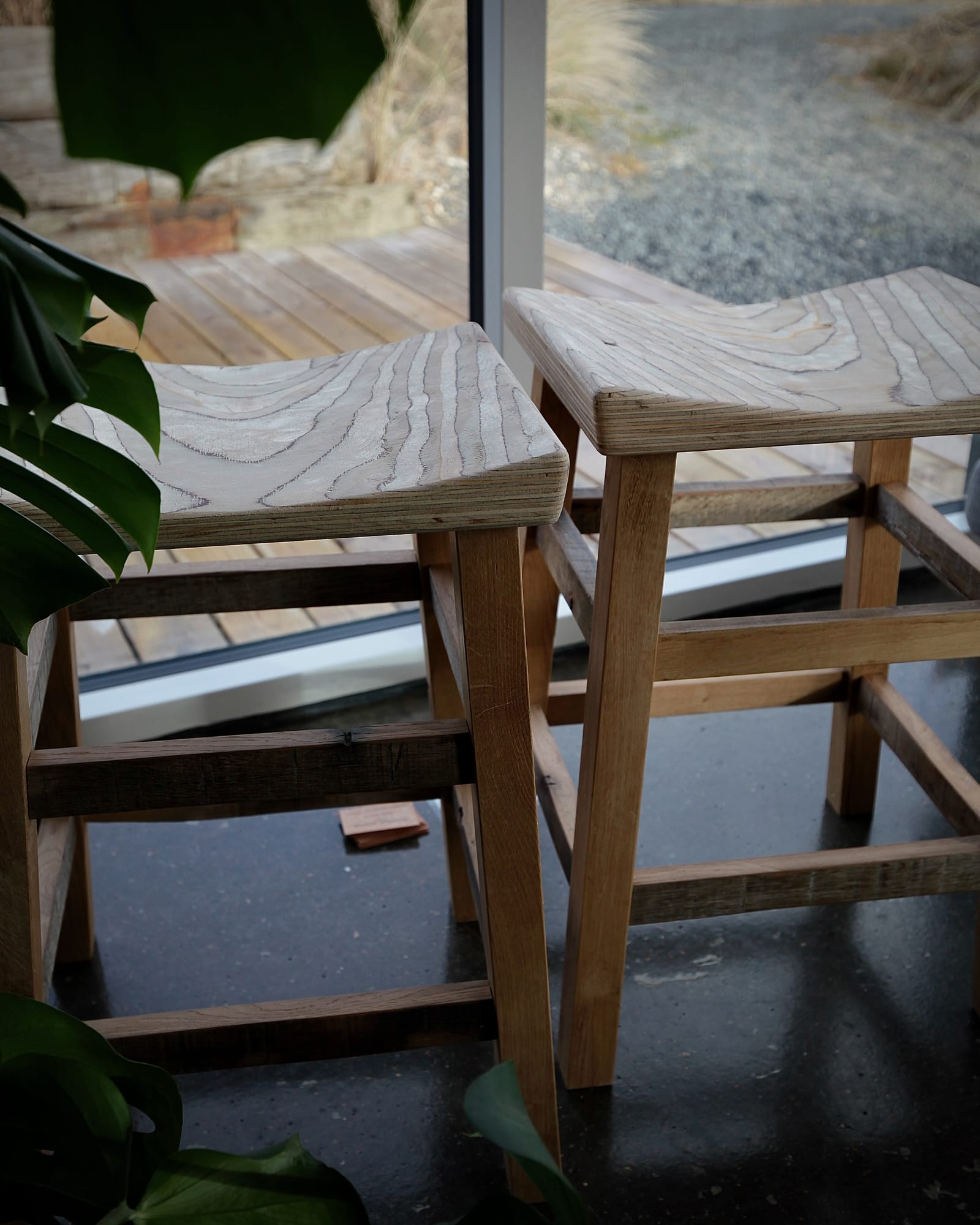Many people now know Piet Hein Eek and his cool barstools, chairs, tables and benches made of recycled wood. The painted, partially peeled boards appear in many exciting and hyped interior contexts, and all of us with a penchant for patinated surfaces and visible traces of use love the fact that a Piet Hein Eek piece of furniture is not just a piece of furniture, but also a story of an alternative life.
It's hard not to be inspired when you hear the Dutch designer talk about his work—and the thoughts behind it the Dutch designer talk about his work and the thoughts behind it.
Some would call it a long-haired, hippie-like, and deeply romantic approach to finances and work; some would argue that society will grind to a halt if we each have to spend a lot of productive time repairing, refining and maintaining, instead of streamlining and hyperscaling.
How many times have we not all experienced throwing out appliances that could easily have been repaired, because repair hours are disproportionately expensive? How many times have we not driven usable and really valuable building materials to the recycling site instead of recycling them, because including the hourly wage it is cheaper just to pick up new stuff from the construction market?
Regardless of how much we practice use-and-throw-away, none of us can doubt that the principle is as far from being sustainable as we can get.Not only is the last century's predatory exploitation of valuable natural resources undermining our common livelihood. The way we are constantly on the hunt for the next and latest consumption fix in itself helps create anxiety and stress and remove focus from what is essential: being present in the moment.
Let's play with the idea for a moment . . .
What would happen and how would we reverse our processes if we could not actually just take home new things and materials ad libitum, but had to use our scraps and waste down to the tiniest bit? How would we act if our society was set up in such a way that it was necessary for each of us to try to keep our machines running as long as possible?
Why in the end—we can rightly ask ourselves—not tentatively follow Piet Hein Eek's principle, and pretend that materials cost a fortune, and labor wages are next to nothing; the reverse of our usual practice, where labor costs make up the majority of a given production, and raw materials and materials can be sourced for almost no money?
The more I think about it, and the more I myself work with the principle in practice, the more I believe in the basic sense of that way of thinking.
The moment we treat raw materials and natural resources as infinitely valuable, our own work simultaneously becomes a kind of investment: that which gives life to the materials. Suddenly, our hours are not just settled in money, but directly, with an immense satisfaction and sense of meaning.
Some would call it a long-haired, hippie-like, and deeply romantic approach to finances and work; some would argue that society will grind to a halt if we each have to spend a lot of productive time repairing, refining and maintaining, instead of streamlining and hyperscaling.
And yes, our time on Earth is extremely precious and limited—but isn't that precisely the reason that we shouldn't waste it on (over)using and throwing away?Isn't it precisely for that reason that we ought to mobilize our creativity—hands-on—and take the time to immerse ourselves, and be present in what we are able to create regardless. . . ?








